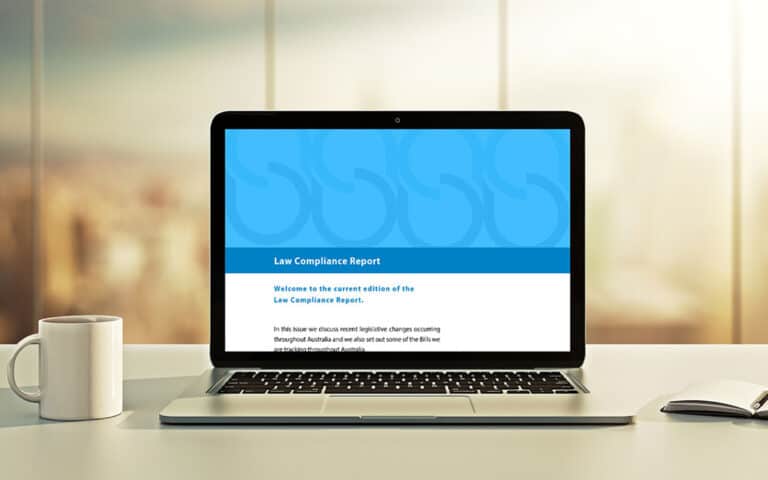This article applies to higher education providers in Australia.
Education Legislation Amendment (Startup Year and Other Measures) Act 2023 (Cth)
On 29 June 2023, the Education Legislation Amendment (Startup Year and Other Measures) Act 2023 (Cth) (the Amending Act) amended the Higher Education Support Act 2003 (Cth) (the Act) to establish accelerator program courses. These courses are designed to develop a person’s skills, capabilities and connections for the purposes of startup businesses.
The Amending Act also introduced a new form of HELP assistance in relation to accelerator program courses. It is called STARTUP-HELP and will be available to final year undergraduate students, current postgraduate students and certain recent graduates who want to enrol in these courses at Australian universities and university colleges.
Accelerator program courses
Section 128B-25(2) provides that an accelerator program course must:
- lead to the award of a qualification accredited by the higher education provider (provided the higher education provider is registered under the TEQSA Act as an Australian University or University College and is authorised to self-accredit its courses under that Act); and
- have an EFTSL value of at least 0.5 EFTSL and no more than one EFTSL; and
- satisfy any other requirements set out in the STARTUP-HELP Guidelines.
If a student creates intellectual property when undertaking the course, the student will own the intellectual property unless there is a prior agreement between the student and the higher education provider which provides otherwise.
Eligibility for STARTUP-HELP Assistance
Student eligibility requirements
Section 128B-1 provides that a student is entitled to STARTUP-HELP assistance if the census date for the accelerator program course is on or after 1 July 2023 (census date) and they:
- are in their final year of an undergraduate course of study; or
- are enrolled in a postgraduate course of study; or
- have been awarded, no more than 36 months before the person commenced the accelerator program course, a qualification at level 7, 8, 9 or 10 of the Australian Qualifications Framework.
In addition, the student must:
- meet the citizenship or residency requirements under section 128B‑30; and
- not have received more than one amount of STARTUP‑HELP assistance; and
- have enrolled in the accelerator program course on or before the census date and remained enrolled; and
- meet the tax file number requirements under section 187‑1; and
- have completed the request for Commonwealth assistance on or before the census date; and
- have applied to the provider for receipt of STARTUP‑HELP assistance in relation to the course; and
- meet the student identifier requirements under section 128B-1(4); and
- be selected to receive the STARTUP‑HELP assistance by the provider in accordance with the STARTUP HELP Guidelines.
Importantly, under section 19-42, students must have been assessed by the higher education provider as academically suited to undertake the accelerator program course before they can apply for STARTUP-HELP assistance. This assessment must be done in accordance with any requirements specified in the Higher Education Provider Guidelines.
Tax file number requirements
Sections 128B-1, 187-1, 193-1(4B) and 193-20 also require students to meet tax file number requirements. If a student applies for Commonwealth assistance in relation to the accelerator program course and the request does not include the student’s tax file number, the higher education provider must notify the student in writing on how to meet the tax file number requirements.
Obligations on higher education providers in relation to STARTUP-HELP
Under section 19-35(5), a higher education provider that receives from the Commonwealth the STARTUP HELP assistance payment for an accelerator program course under section 128D-1 must have open, fair and transparent procedures that, in the higher education provider’s reasonable view, are based on merit for making decisions about:
- the selection, from among the persons who seek to enrol in an accelerator program course, of persons to enrol; and
- the selection of students for receipt of STARTUP-HELP assistance in relation to that accelerator program course; and
- the treatment of students undertaking that accelerator program course.
Similar to existing restrictions, a higher education provider must not:
- induce a person to make a request for Commonwealth assistance to enrol in an accelerator program course with the higher education provider; or
- engage in cold-calling; or
- use third-party contact lists; or
- require students to be a member of certain organisations or make payment of certain amounts.
In addition, under section 169-25(1A), a higher education provider must determine a particular date to be the census date for any accelerator program course it provides or proposes to provide, and must determine the EFTSL value for that course in accordance with the Administration Guidelines.
Calculation and payment of STARTUP-HELP assistance and accelerator program course fees
The Amending Act made changes to Division 19-F of Part 2-1 of the Act to include contributions and fee requirements relating to STARTUP-HELP assistance and accelerator program courses. Higher education providers must:
- under section 19-85, charge in accordance with the requirements of the Act:
- student contribution amounts and tuition fees for each unit of study in which it enrols students; and
- an accelerator program course fee for each accelerator program course in which it enrols students;
- under section 19-92, determine one accelerator program course fee, not exceeding the maximum fee for an accelerator program course as outlined in Division 128C of Part 3-7;
- under section 19-97, give the Minister a schedule of the accelerator course program fees, ensuring that the schedule:
- provides sufficient information outlining the person’s accelerator program course fee; and
- is published for a particular period by the date ascertained in accordance with the Higher Education Provider Guidelines; and
- is available to all students enrolled, and persons seeking to enrol, on request and without charge; and
- under section 169-16, charge a domestic student enrolling in an accelerator program course the accelerator program course fee and no other amount.
Reversal of STARTUP-HELP assistance
New Division 128E of Part 3-7 of the Act relates to the reversal of STARTUP-HELP assistance in special circumstances. The decision to reverse must be determined by a higher education provider and can only be reversed if:
- the person has not completed the requirements for the accelerator program course during the period in which the person undertook or was to undertake the course; and
- the provider is satisfied that circumstances apply to the person that:
- are beyond the person’s control; and
- did not make their full impact on the person until on or after the census date for the accelerator program course; and
- make it impracticable for the person to complete the requirements for the course in the period during which the person undertook or was to undertake the course.
If STARTUP-HELP assistance for an accelerator program course is reversed, the higher education provider must:
- refund to the Commonwealth the amount which was paid by the Commonwealth for the course under section 182D-1 (if any); and
- refund to the person the amount paid in relation to the person’s accelerator program course which has been reversed.
Conclusion
Higher education providers in Australia should ensure that they are aware of their obligations regarding accelerator program courses and the STARTUP-HELP financial assistance as discussed above.




